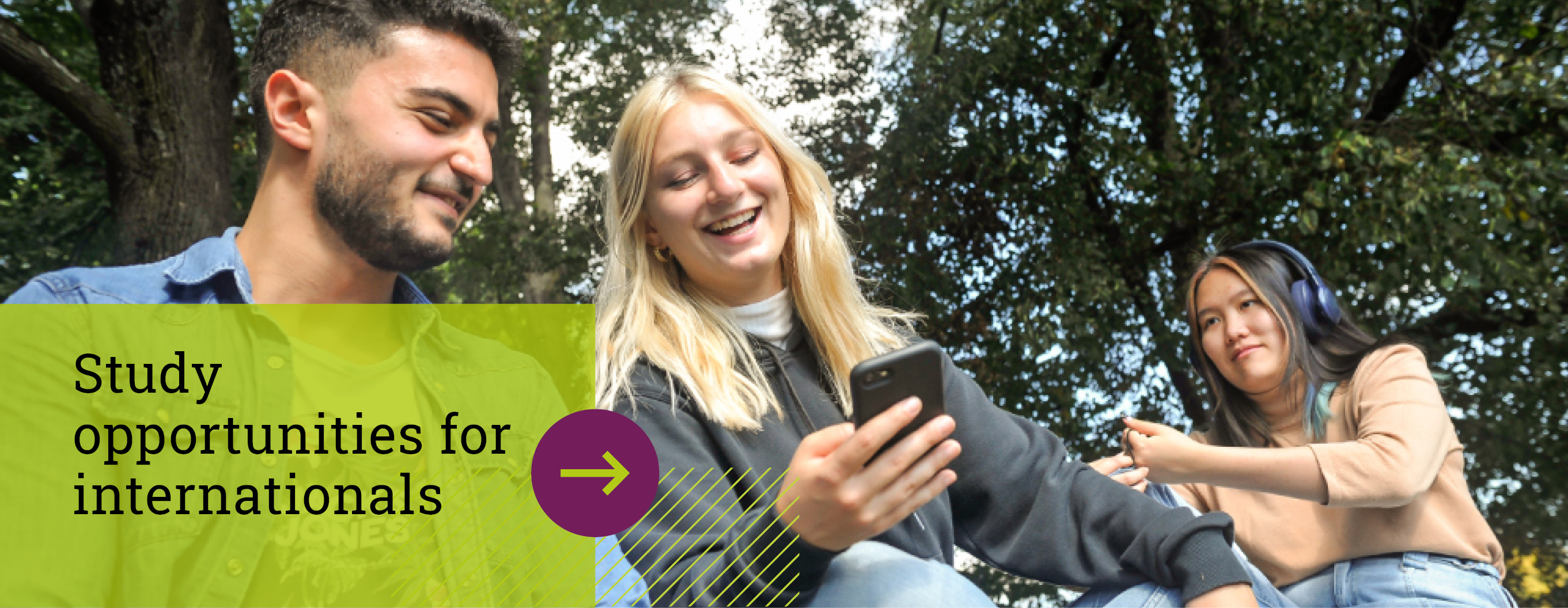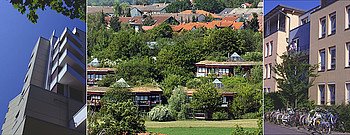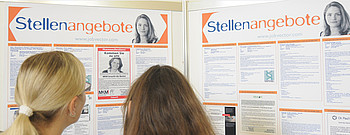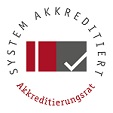Bioeconomy (Master’s)
Change the system. Shape the future.
Bioeconomy (Master’s)
Change the system. Shape the future.
During the interdisciplinary program that looks at the entire bio-based value chain and networks, students examine the ecological, social, and economic dimensions of the bioeconomy on a micro and macro-level. At the same time, they learn to consider the requirements for innovations that need to come from the organizations working in the bio-based economy as well as the corresponding political framework conditions.
- Focus on system and value chain approaches
- Interdisciplinary and transdisciplinary methods
- Europe’s first bioeconomy degree program
- International perspectives on bioeconomy
- Reasons to Choose Hohenheim
| Degree Master of Science (M.Sc.) |
4 semesters 120 credits |
Language English |
University places Unlimited |
Location Stuttgart |
|||||
More information about the individual modules can be found in the module catalog.
In the first year of studies,
our students obtain basic knowledge about all aspects of bioeconomy and the bio-based value chain. To ensure that all students are able to successfully complete the program despite having different academic educations, three bridging modules are offered in the first semester. In addition, in several compulsory modules students learn information and methods necessary for a systematic analysis of the bio-based economy.
The second year of studies
offers students the chance to set their own schedule by choosing from many different elective modules. In the compulsory module “Projects in Bioeconomic Research,” students apply the knowledge gained by carrying out research projects together with the private sector and other organizations that look at the entire bio-based value chain and value network.
In the fourth semester, the program is completed by writing a research-intensive Master's thesis .
The inter- and transdisciplinary approach of the study program encourages critical thinking, and graduates have the skills necessary to develop and execute diverse activities within a biobased economy. In particular, “Hohenheim bioeconomists” are able to
- plan, assess, and analyze the production and processing of renewable resources;
- coordinate the production of biobased products, adapted to specific locations;
- consider the interconnectedness and interdependencies of different utilization pathways for biomass;
- understand the key technologies used for the production of biobased products and advance their economic use;
- consider the societal requirements for biobased products and their production methods;
- organize the market launch of new biobased products;
- understand how (new) biobased products are embedded in value chains from micro- and macroeconomic perspectives; and coordinate the cooperation among different stakeholders in the development of biobased value chains.
- Companies that manufacture products based on biological resources and biotechnological processes (including the food industry and bioenergy) as well as companies that create consumer products based on biological resources or processes
- Organizations that support the bio-based value networks (including consulting organizations and financial companies)
- Ministries and agencies that support the bioeconomy
- International organizations that support the bioeconomy including international development organizations
- Project management
- Founding a start-up
Studying at the University of Hohenheim is worth your while.
- Hohenheim is a university with a long tradition.
- You will receive personal attention and are able to choose from a broad range of courses.
- Research and teaching are marked by internationality, innovation, interdisciplinarity, and sustainability.
- You can use the UniNow App as support for mobility during your studies, so you will be able to do research and study at any time.
- The University is located in an economically strong region, which is ideally suited for internships and has many job opportunities.
- The campus infrastructure offers short distances between lecture halls, canteen, libraries and sport facilities.
- You will experience a truly unique university atmosphere enriched by the Baroque palace and the historic gardens and parks.
- Being so close to Stuttgart also gives you the opportunity to experience the vibrant city life.
| Application deadlines | |
|---|---|
| 1st subject-related semester | Winter semester: 15 June |
Higher subject-related semesters | Winter semester: 15 June |
| Requirements | |
|---|---|
| Admission criteria | Bachelor's degree (180 ECTS) or equivalent with a profile in one of the following fields: Agricultural sciences, natural sciences, or business and economics |
| Content requirements | We expect a good command of English, knowledge in the use of MS Office programs, and the ability and willingness to work in intercultural teams. |
| Language skills | English B2: Proven by an English test. The following tests are accepted: TOEFL 90 points, IELTS 6.5 on average, Cambridge Certificate in Advanced English, or Duolingo at least 125 points. Please note that the Abitur certificate is not sufficient proof of language proficiency. If you have any questions, please contact bioeconomy@uni-hohenheim.de in advance. |
| Pre-study internship | no |
| Selection procedure | |
|---|---|
| Selection criteria | None However, the requirements (see Admission Regulations) must be met for admission to be granted. |
| Selection interview | no |








